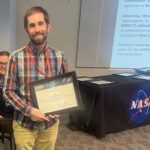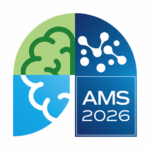By Maeve Dunigan
A team of researchers including Dr. Liqing Jiang, an assistant research engineer at the University of Maryland (UMD) Earth System Science Interdisciplinary Center (ESSIC), recently published an e-Lecture entitled “How to Document – Ocean Acidification Data.”
The e-Lecture, which can be found on the Association for the Sciences of Limnology and Oceanography (ALSO) website, deals with the intricacies of documenting data for the new field of ocean acidification.
According to Jiang, studies on ocean acidification have increased substantially in the last decade because growing ocean acidity is a huge threat to both the marine ecosystem and the economy.
“In the past, global climate change [was] kind of the elephant in the room when it [came] to changes to our planet,” Jiang wrote in an email.
Climate change is commonly used to describe the regional climate pattern changes that have occurred since around the late 20th century, and is widely recognized as a repercussion of increased levels of carbon dioxide in the atmosphere. The ocean is actually largely impacted by this increased carbon dioxide and these climactic changes.
“The ocean is taking up 25 percent of the carbon dioxide human activities release into the atmosphere every year,” Jiang wrote. “While it effectively slows down global climate change, it is taking a toll on global oceans. By taking up [carbon dioxide, the] ocean is becoming more acidic.”
The lecture, which is formatted as PowerPoint slides, could impact ocean acidification research in many positive ways.
“The metadata template we described in the e-Lecture makes it possible to document biological response [ocean acidification] data in full detail for the first time,” Jiang wrote. “The template can also be applied to other common types of ocean acidification data, making [this] data much more effective than having to [rely] on different metadata templates for different types of ocean acidification data.”
The burgeoning e-lecture format has become a reliable resource to ensure that scientists have an easier time researching and documenting new data.
According to Jiang, the group’s ocean acidification e-Lecture will receive updates to support future synthesis, data and model efforts “for better prediction of changes to our marine ecosystem.”





